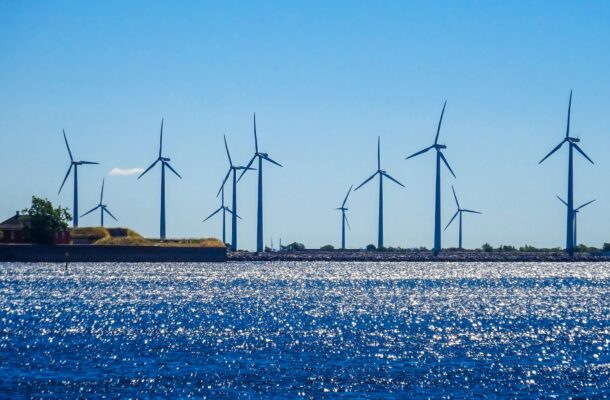A view from the swamp

“Scylla and Charybdis” comes from a Greek myth. Imagine sailing a small boat between dangerous rocks and a whirlpool. Australian State and federal governments find themselves between a rock and a hard place when it comes to offshore wind farms.
The federal government has rejected a proposed expansion of Port Hastings in Westernport, southeast of Melbourne. The state government regards the project as critical for the development an offshore wind industry. The reason given for refusal was that it would harm wetlands and marine wildlife.
The wetland is listed under the ‘Ramsar’ convention, a global intergovernmental treaty for the conservation and wise use of wetlands and their resources. The Mornington Peninsula Landcare Network told the ABC 7.30 program that although the area affected by the proposed wind farm project is small, it has a very high concentration of migratory and endangered birds. The ABC report gave the impression that Westernport is pristine. In fact, it has a history of heavy industry and shipping; much of its catchment is intensively farmed.
A vast area of wetland was drained in the Westernport catchment and converted into very productive farming land. The resulting degradation of Westernport and its catchment is the share of food production costs (externalities) that the community, perhaps unknowingly, has been willing to impose on the environment.
Heavy sedimentation in Westernport Bay is due to land clearing, drainage of wetlands and straightening of natural waterways. The former Premier of Victoria, Henry Bolte, not a renowned environmentalist, is said to have remarked during the 1960’s that if we had tried to ruin Westernport, we could not have done a better job.
However, it is encouraging that natural systems are so resilient and adaptable. The western sewage treatment plant west of Melbourne is also listed under Ramsar. Despite intense human activity, wastewater treatment processes and the presence of livestock, the number of bird species identified there is similar to Westernport and Kakadu.
Bird species richness at Westernport and Werribee seems to indicate that human activity, including heavy industry, shipping, farming and urban development are not necessarily inconsistent with the objectives of the Ramsar convention. However, the abundance of fish-eating birds has been declining.
There is another plan to locate an offshore wind farm in South Gippsland, only about 100 kilometres east of Westernport. The proposed ‘Star of the South’ offshore windfarm would cover an area of almost 500 square-kilometres, with 200 wind turbines, east of Wilsons Promontory. The Corner Inlet Ramsar site, Nooramunga and Corner Inlet Marine and Coastal Parks are nearby.
This wind farm would generate about the same amount of electricity as the (now closed) Hazelwood power station, or enough to power 1.2 million homes. In 2020, the energy consumed by road transport alone in Australia was roughly equal to the output of 22 Hazelwood power stations running at 100% capacity 24/7. Clearly, offshore wind farms cannot provide enough cheap electricity to meet growing demand, especially from the transport sector.
The proponents have been doing a range of background studies, and a licence to investigate the feasibility of an offshore wind farm is pending.
The Australian Marine Sciences Association (AMSA) made a number of useful recommendations on the scope and presentation of the project’s environmental Impact Statement (EIS).
Friends of the Earth have campaigned actively for the Star of the South wind farm project, apparently without taking into account the Ramsar convention or other potential impacts of the project in the region.
The Australian Conservation Foundation appears to offer unqualified support for wind farms generally.
The narrow and selective focus of some environmental activists and lobby groups suggests a willingness to accept and even celebrate the environmental status quo of Westernport as though ongoing agriculture, industry and urban encroachment are environmentally benign.
The government’s decision to reject the Westernport project, while at the same time encouraging another in South Gippsland, looks arbitrary and somewhat disingenuous. It seems that all Ramsar sites aren’t created equal, or perhaps the government’s decision to refuse the Westernport project has more to do with politics than the environment.
For a long time, environmental values have been traded for cheap electricity. Paraphrasing Albert Einstein: it doesn’t make sense to keep doing the same thing, expecting different results. But all forms of energy, including renewables, impact to some extent on the environment, and it may not be assumed that the end result will always justify the means of achieving it.

Max Thomas, Dip. Agric. (retired) worked in the public sector and in private consulting on a range of land, water and waste management projects. He prepared guidelines for irrigation with recycled water for EPA Victoria and developed a number of Environmental Management Systems in the water industry.










